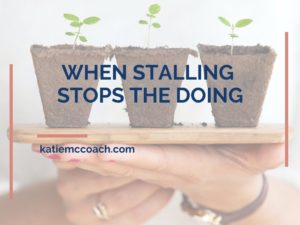
There are days when the amount of work in front of me is halting. I find myself sitting in front of my computer, staring and fidgeting and thinking about all the things I WILL do. Eventually. Once I start typing. I wonder how many of you are like me when it comes to your writing. Do you find yourself staring at the computer thinking of all the amazing things you will write, instead of just…writing?
If you are anything like me, that time spent stalling work feels productive, until you reach dinner time and you’ve realized you didn’t actually do…anything. I love existing in my own mind, as I’m sure many of you writers do too. We like to tell ourselves that sitting and thinking about our book is a form of writing it.
And to a point, it can be. But some of us use that as an excuse. We tell ourselves we are writing when really we spend hours thinking, thinking, thinking, and not doing. We could write a book for hours, days, months without actually writing a thing. Wouldn’t it be more effective if we wrote words that eventually created some semblance of a story and then worked with what was imperfect to get it closer to what we dream it could be?
Isn’t working with something better than trying to work with nothing?
Thinking is not dangerous. It is necessary. Sometimes stalling is okay. But there are those of you who know that this is your excuse. You know that eventually you need to write. The problem is, what is in your mind and what hits the page usually doesn’t come out quite the same. And that moment of realizing you’ll actually have to work for it—hard edits are in your future—it paralyzes you.
So today, I am making the commitment to you that I am no longer going to sit and stare and think until I’ve convinced myself I’ve done something productive. Instead, if I find myself entering that space, I will:
- Write (or work on a big task) with a timer. Set it for 15 min, break for 5, and add 5 min to the project time after evert break. 15 on, 5 off, 20 on, 5 off, 25 on, 5 off, and so on.
- Journal or free write (releasing those paralyzing thoughts on paper can lighten our load substantially).
- Do something that’s actively mindless on purpose for a timed chunk to allow my brain to go off in a tangent. BUT with the promise that once that timer goes off, so does the lack of action.
- For example, laundry, dishes, coloring, walking, etc.
Your list may be different than this, but if this is something you struggle with, I encourage you to create your own plan of action when stalling threatens to become an excuse for not doing. Because done is better than perfect.
I commit to being more intentional with my on and off time, so that it is of value to me, instead of seen as a way to procrastinate actually doing anything for real at all.
Will you make this commitment with me?
Comment and let me know.
Connect with me on:
Join the FREE Writing with Coach McCoach writing support community HERE.


 Download your free copy of these 8 tried-and-true strategies to stop self-doubt and imposter syndrome as a writer. And, build the power to resist it in the future.
Download your free copy of these 8 tried-and-true strategies to stop self-doubt and imposter syndrome as a writer. And, build the power to resist it in the future.